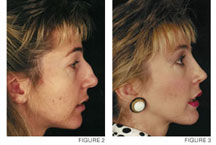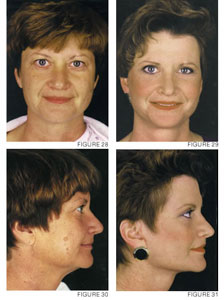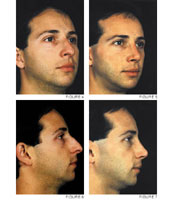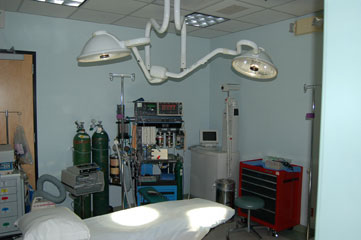|
Dr. Geoffrey R. Keyes – Proudly Setting the Standard for Safety in Plastic Surgery
I went online and landed on a few prime cosmetic surgery blog sites. I read with great Dr. Geoffrey R. Keyes is certified by two medical boards: The American Board of Plastic Surgery and The American Board of Otolaryngology – Head and Neck Surgery. Both these surgical specialties substantiate training for cosmetic surgical procedures. He has published and lectured internationally. He belongs to a staggering list of associations, including: American Society of Plastic Surgeons, California Medical Association, California Society of Facial Plastic Surgeons, California Society of Plastic Surgeons, and Los Angeles County Medical Association. I list these credentials to support the following position—that patients need to arm themselves with the proper information in order to make an informed decision while choosing a plastic surgeon. But just having a list of impressive credentials is not enough to substantiate this position. Shouldn’t the intended plastic surgeon also be board certified?
You don’t need that to practice. People confuse board certified with licensure. So many people are traveling overseas to have surgery done and they know nothing about where they’re going. They don’t know the doctors as well as they should. They don’t know what accreditation is. Board certification is an honor. Dr. Keyes recently appeared on the Montel Williams show to stress the importance of patient safety. He wanted to reach the consumer and spread the importance of being accredited and board certified. He warns us that several “plastic surgeons” on TV shows aren’t board certified. It’s a very important distinction because if somebody’s board certified, they’ve demonstrated to their surgical specialty-plastic surgery, that they have what it takes to pass a written and oral examination. Only 14 states require accreditation of surgery centers. There are 37 states that you might walk into the doctor’s office and he may not be a true plastic surgeon. He may just be a surgeon who calls himself a cosmetic surgeon. So he may not be accredited. And you don’t know what safety standards he’s putting you to sleep under. That’s important information. Most people are intimidated when they come into a doctor’s office. They don’t know The Keyes Surgicenter for Cosmetic Surgery is designed to provide advanced and comprehensive surgical services for those who wish to improve or refine a facial or body feature. The Surgicenter is accredited by the American Association for Accreditation and Ambulatory Surgery Facilities (AAAASF), an agency whose scrutiny of surgical facilities assures they meet the highest safety standards for patient care. I designed WWW.AAAASF.ORG for them and it’s all their business issues. For example if I was a doctor and I want to be accredited, I apply to this organization and I adhere to all of the standards. I get inspected and the inspection is done online. Somebody comes in and reviews the Surgicenter. (He shows me his operating room, which this standard is based from). In looking at the checklist, each thing has to be complied with, like exposure control medium and hazard communication. It operates like a little hospital, and every one of these things has to be complied with for safety. So that’s why accreditation is so important. If you’re going to an outpatient accreditation facility, how do you know that the properly inspected equipment is used in the operating room? My equipment is inspected twice a year. If you look at it, you’ll see stickers on it. These are all important safety issues. According to Today’s Surgicenter, the article entitled Breast Augmentation Safety in Outpatient Surgery Facilities, posted 4/11/2005,http://www.surgicenteronline.com/hotnews/54h111338777018.html, Dr. Geoffrey Keyes, along with a long list of doctors compiled information from 246,552 breast implant procedures.
Dr. Keyes designed the first quality insurance Internet-based program in history, and he is on the board of directors for this organization. Thousands of surgery centers entered their information on their cases for safety into this web-based program. And we have been able to analyze them, and as a result we have been able to write papers on statistics relative to safety on outpatient surgery. We have a million cases after bleeding episodes of how many breast augmentations, how many deaths occurred from outpatient settings and what they were attributed to. Nobody ever had this information before we did this.
When seeking a plastic surgeon be sure to ask the doctor what specialty are they board certified? If he or she doesn’t say ear, nose, or throat or opthamology, and somebody wants facial cosmetic surgery, then most likely he hasn’t had a surgical residency to train them to do this type of work, and that ought to raise some further questions. Highest High You touch people in different ways. In doing cancer surgery, you’re dealing with people in probably the worst times of their lives, and guiding them through it. That’s very important to me. But even when you do a cosmetic procedure like a rhinoplasty and you have a 16- or 17-year-old girl, she’s kind of shy because she has a bump on her nose, and you refine her nose and you bring out what’s good about her nose, it’s fun to watch them blossom. It’s very inspiring. There’s a little bit of an instant gratification with plastic surgery that you don’t always see in other specialties in that you do something and there’s a result right there that you can look at. A lot of other specialties like doctors that treat diabetes. It’s a long-term process that’s very gratifying but it’s not as instantly rewarding.
Well, this is very serious business. And all the things we discussed before are a prelude to answering that question. A complication can occur with any surgery. Patients are always warned that they can die from anesthesia. Generally speaking, cosmetic surgery is done on healthy people. For example, I wouldn’t perform an operation if somebody had severe cardiac disease, and even somebody with a relatively minor problem would be taken to a hospital to do it because there’s more support there. However, if you are in a situation where you don’t have an accredited facility, you don’t know the capability of the doctor and the anesthesiologist, there’s always a risk. And that’s why I stress accreditation as part of the process of researching who you’re going to. People who die from cosmetic surgery from unrelated issues are due to the competence of the doctor. For example, pulmonary embolism is a blood clot going from the calf to the lung, and it essentially deprives you of oxygen. You could die from that. That could happen from any surgery, whether you’re an outpatient or in a hospital. This is something to be taken quite seriously. There’s a tendency with the media to make it look more like fashion or having your hair done. It’s not. It’s surgery. It’s as complicated a surgery as any surgery. People think because it’s your appearance and there is some vanity involved, that it must be simple to do. Not at all, it has to be done correctly. How do you assess a potential patient, when you do consultations with someone and maybe there’s something a little bit askew about their face that they want to change. I was reading your website where you say people have very specific things that they want to change, particularly with rhinoplasty—they know exactly the nose they want. You obviously go based on what you feel is correct, but a lot of times, are a lot of the patients wrong about how they’re going to end up looking? Well, the first thing you have to assess is the mental health of the patient and what they’re looking for. If somebody doesn’t have an idea about what they truly want, they’re probably not a good candidate for surgery. We have patients come in and ask what we can do for them, and that’s a general overall confusion of who they are and what they’re all about. When patients come in with specific pictures like a movie star’s and their nose has no resemblance of what they’re asking for, that’s another red flag. There has to be a realistic approach. You can only do so much with an individual nose. You can refine it. Do you have an age limit? Do they have to be 18, or does it matter? It depends on the procedure. For example, we don’t like doing breast augmentation on children or adolescents because we don’t think they’re in a proper frame of mind at that age of maturity to make that kind of a decision. However, a rhinoplasty for a young girl who’s 15, 16, 17, 18, or fully-grown, you can do a rhinoplasty. It can have a dramatic effect on their self-esteem and appearance. It’s okay to do it at that time. But there’s a difference between rhinoplasty, and liposuction, and breast augmentation. You have to pick and choose which procedure you’re going to do. Have you had any low points as a surgeon? Complications are part of doing surgery. We’ve had patients that have had setbacks, nothing major; but it’s always disappointing when that happens. Have you ever had an ultimate failure? Where somebody came in and there was just nothing you could do to help that person? Absolutely. Somebody comes in for revision surgery and there’s nothing we can do. That’s why people need to use good judgment. I think it’s good what you’re doing by educating the public. I think of plastic surgery and I think celebrities. That’s all hype. That’s not the reality of it. When somebody comes to the office and wants plastic surgery, the first thing I do is fill out the paperwork about their general health. I have them write down what they’re interested in seeing from their procedure. It educates them about all the aspects of what they’re looking for. It sets up questions, and then by the time I do the consultation, they’re more educated. Sometimes people are educated because they have been on the web. Sometimes they know things before the doctors do, because it’s new and they found it online. The best way to have a successful outcome is to start properly. And that’s an educated, well-informed patient, and a patient who knows exactly what they want. There are people who have terrible things occur related to surgery. You can’t correct everything. It’s not like you can take an eraser and erase them. What are some of the hazards of chin implants. Infection? Bleeding and infection are potentials after any surgery. If somebody has an infection after surgery, it doesn’t mean somebody did anything wrong. Luckily in plastic surgery it doesn’t happen very often. We use prophylactic antibiotics. You can also have nerve damage and loss of sensation. What is your ideal patient, then? Well-educated [about their procedure], emotionally stable, who knows exactly what they want, is realistic about the potential outcome, and is in good health. According to Dr. Keyes, in order to do cosmetic surgery well, the doctor should be well versed in reconstructive surgery. Most of cosmetic surgery evolved from what doctors learned in the war, taking care of the wounds on faces. Plastic surgeons are really experts in wound care—that’s really what we are. People don’t realize that. They think of the glamorous stuff. Because there are still 37 states that permit unaccredited facilities, you could easily walk into a doctor’s office, and he may not be a true plastic surgeon. Your safety is not guaranteed. Do your research, ask well-informed questions, and don’t put yourself at risk. To learn more about Dr. Geoffrey R. Keyes, visit his website atwww.nasalsurgery.org, or www.keycare.com. For a consultation, contact Dr. Keyes at (310) 859-9388. His office is located at 9201 Sunset Blvd., Suite 611, Los Angeles, CA 90069. Interview by Kaylene Peoples |




 You wouldn’t want a dermatologist to do rhinoplasty. Dermatologists have no background for it. Nor would you want an OBGYN to do a facelift. Make sure the person is trained in the specialty that he’s saying he’s operating. There’s no specialty in cosmetic surgery. It is performed by different doctors in different specialties. Cosmetic surgery itself is not a residency trained, recognized by the Medical Board of Medical Specialties.
You wouldn’t want a dermatologist to do rhinoplasty. Dermatologists have no background for it. Nor would you want an OBGYN to do a facelift. Make sure the person is trained in the specialty that he’s saying he’s operating. There’s no specialty in cosmetic surgery. It is performed by different doctors in different specialties. Cosmetic surgery itself is not a residency trained, recognized by the Medical Board of Medical Specialties. We have heard horror stories of people getting procedures like liposuction dying on the table, are those just freak accidents?
We have heard horror stories of people getting procedures like liposuction dying on the table, are those just freak accidents? You can take a bump off. You can narrow it. But if somebody, for example has thick skin, sometimes what you do doesn’t show as much. So, a realistic attitude is one of the most important aspects to judge a patient in this type of surgery.
You can take a bump off. You can narrow it. But if somebody, for example has thick skin, sometimes what you do doesn’t show as much. So, a realistic attitude is one of the most important aspects to judge a patient in this type of surgery.